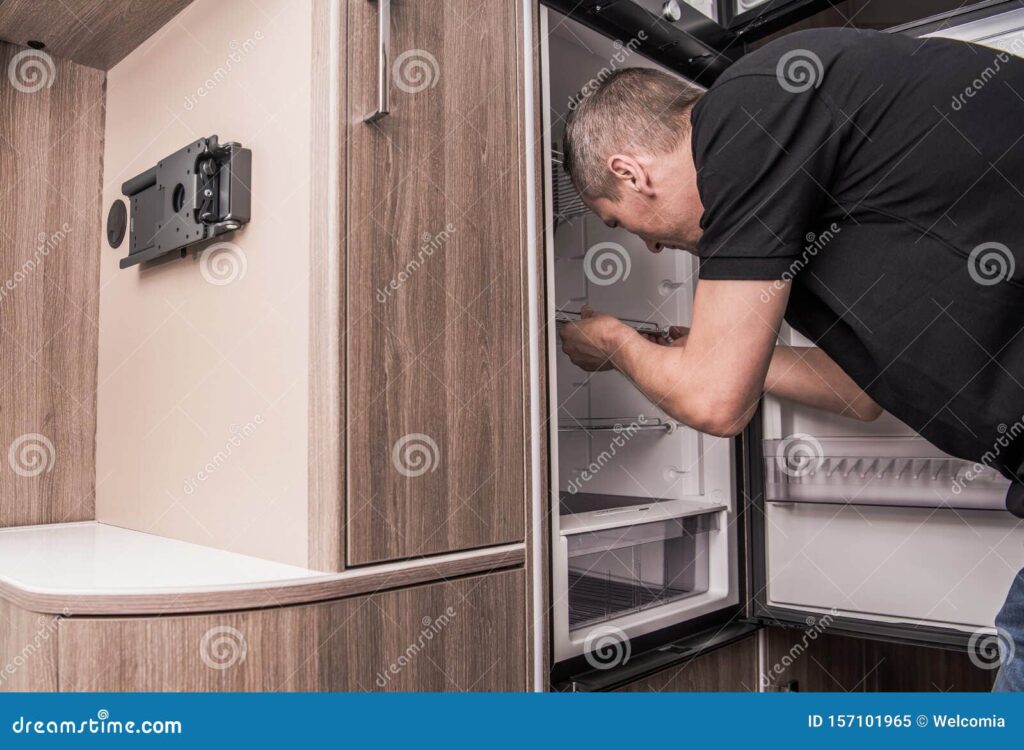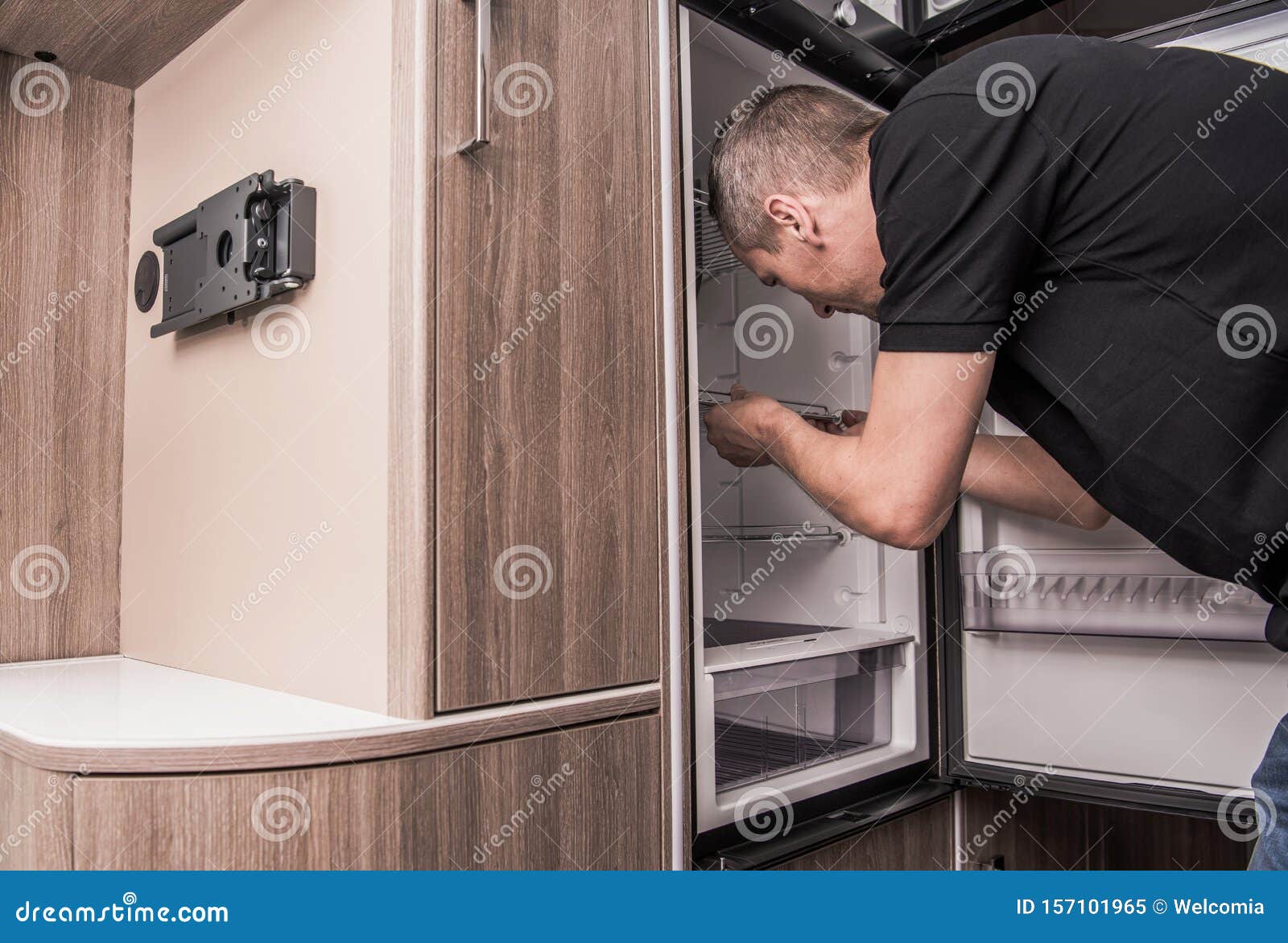
Troubleshooting Your Camper Refrigerator: Why It’s Not Getting Cold and How to Fix It
The open road, the crackling campfire, and the promise of adventure – these are the hallmarks of the camper lifestyle. But imagine arriving at your idyllic campsite, ready to enjoy a cold beverage, only to find your camper refrigerator not getting cold. This scenario can quickly turn a relaxing getaway into a frustrating ordeal. This article delves into the common causes behind a malfunctioning camper refrigerator, providing you with the knowledge to diagnose and hopefully resolve the issue, ensuring your next trip is as enjoyable as you envisioned.
A properly functioning refrigerator is essential for preserving food and drinks, especially in a camper where access to grocery stores might be limited. Ignoring the problem can lead to spoiled food, unpleasant odors, and potentially health risks. Therefore, understanding the mechanics of your camper refrigerator and the potential issues that can arise is crucial for any camper owner.
Understanding Your Camper Refrigerator: Absorption vs. Compressor
Before diving into troubleshooting, it’s important to understand the two primary types of refrigerators found in campers: absorption and compressor. Knowing which type you have is the first step in diagnosing the problem.
- Absorption Refrigerators: These refrigerators use a heat source (propane or electricity) to circulate a refrigerant. They are known for their quiet operation and ability to function off-grid using propane. However, they are generally less efficient than compressor models. If your camper refrigerator is not getting cold and you have an absorption model, the issue is likely related to the heat source, the refrigerant cycle, or the level of your camper.
- Compressor Refrigerators: These refrigerators operate similarly to those found in homes, using a compressor to circulate refrigerant. They are typically more energy-efficient and cool down faster than absorption models. If your camper refrigerator is not getting cold and is a compressor model, the issues might be related to the compressor, the power supply, or the thermostat.
Common Causes of a Camper Refrigerator Not Getting Cold
Several factors can contribute to a camper refrigerator not getting cold. Here’s a breakdown of the most common culprits:
Power Supply Issues
A lack of power is the most frequent cause of a refrigerator malfunction. Ensure your refrigerator has a stable power source, whether it’s AC (shore power), DC (battery), or propane (for absorption models).
- AC Power: Check the circuit breaker for the refrigerator. It may have tripped. Also, inspect the power cord and outlet for any damage.
- DC Power: If your refrigerator runs on DC power, verify the battery voltage. A low battery can prevent the refrigerator from operating correctly. Check the fuses and connections.
- Propane Supply (Absorption Models): Ensure the propane tank is full and the valve is open. Check the gas line for leaks. A pilot light failure is a common issue.
Leveling Problems
Absorption refrigerators rely on gravity to circulate the refrigerant. If your camper is not level, the refrigerant may not flow correctly, leading to poor cooling. Always level your camper before turning on the refrigerator, especially if you have an absorption model. Use leveling blocks or a leveling system to achieve a level surface. This is particularly important for absorption refrigerators; if your camper refrigerator is not getting cold, this is one of the first things to check.
Ventilation Issues
Adequate ventilation is crucial for both absorption and compressor refrigerators. Heat generated by the refrigerator must be able to dissipate properly. Check the vents on the outside of your camper (usually located on the roof or side) to ensure they are not blocked by debris, leaves, or nests. Poor ventilation can significantly reduce the efficiency of your refrigerator, causing it to struggle to cool. Over time, this can damage the cooling system. This is also a major reason why your camper refrigerator is not getting cold.
Thermostat Malfunction
The thermostat controls the temperature inside the refrigerator. If it malfunctions, the refrigerator may not cool properly. Test the thermostat by adjusting the temperature settings. If the refrigerator doesn’t respond, the thermostat may need to be replaced. In many cases, a faulty thermostat is the reason your camper refrigerator is not getting cold.
Refrigerant Leaks or Blockages (Absorption Models)
Absorption refrigerators use a closed-loop system with a refrigerant. Leaks or blockages in this system can prevent the refrigerator from cooling. This is a more complex issue that usually requires professional repair. If you suspect a leak or blockage, it’s best to contact a qualified RV technician. When your camper refrigerator is not getting cold, and you suspect refrigerant issues, have it professionally inspected.
Blocked Airflow (Compressor Models)
Compressor refrigerators also require good airflow, although the mechanisms are different. Ensure the vents inside the refrigerator are not blocked by food items. Overpacking can restrict airflow and reduce cooling efficiency. Make sure there’s sufficient space around items in the fridge. If your camper refrigerator is not getting cold, consider if you’ve overpacked it.
Damaged Components (Compressor Models)
Compressor refrigerators have various components, including the compressor, condenser, and evaporator. Damage to any of these can prevent the refrigerator from cooling. If you suspect a damaged component, it’s best to consult a professional. A damaged compressor is a serious issue that can be why your camper refrigerator is not getting cold.
Step-by-Step Troubleshooting Guide
Follow these steps to troubleshoot your camper refrigerator:
- Check the Power Supply: Verify that the refrigerator is receiving power. Check the circuit breakers, fuses, battery voltage, and propane supply (if applicable).
- Level the Camper: Ensure your camper is level, especially for absorption refrigerators.
- Check the Thermostat: Adjust the thermostat settings to see if the refrigerator responds.
- Inspect Ventilation: Ensure the vents are clear and unobstructed.
- Examine the Interior: Check for blocked airflow and proper food storage.
- Listen for Sounds: Compressor refrigerators should produce a humming sound. Absorption refrigerators may have a gurgling sound. Unusual noises may indicate a problem.
- Consult the Owner’s Manual: Your manual will provide specific troubleshooting tips for your refrigerator model.
- Professional Inspection: If you’ve tried these steps and your camper refrigerator is not getting cold, it’s time to call a qualified RV technician.
Preventative Maintenance
Regular maintenance can prevent many problems and extend the life of your camper refrigerator. Consider these preventative measures:
- Regular Cleaning: Clean the interior and exterior vents regularly to prevent dust and debris buildup.
- Check Seals: Inspect the door seals for damage. Replace them if necessary to maintain proper cooling.
- Professional Service: Have your refrigerator professionally inspected annually or as recommended by the manufacturer.
- Proper Storage: Avoid overpacking the refrigerator, and ensure items are stored in a way that allows for good airflow.
- Leveling: Always ensure your camper is level before using the refrigerator.
When to Call a Professional
While some issues can be resolved with basic troubleshooting, others require the expertise of a qualified RV technician. Contact a professional if:
- You suspect a refrigerant leak.
- The refrigerator is not cooling at all, despite your troubleshooting efforts.
- You hear unusual noises coming from the refrigerator.
- You are uncomfortable working with electrical or propane systems.
A professional can accurately diagnose the problem and perform the necessary repairs, ensuring your camper refrigerator is functioning correctly and safely. Don’t hesitate to seek professional help if you’re unsure about any aspect of the repair process.
Conclusion
A malfunctioning camper refrigerator can be a significant inconvenience during your camping trip. By understanding the common causes of cooling problems and following the troubleshooting steps outlined in this article, you can often diagnose and resolve the issue yourself. Remember to prioritize safety and seek professional assistance when needed. With proper maintenance and troubleshooting, you can keep your camper refrigerator running smoothly, ensuring your food stays fresh and your beverages cold, making your camping experiences enjoyable for years to come. Ultimately, identifying why your camper refrigerator is not getting cold is the first step towards a solution and a return to the open road.
[See also: How to Choose the Right Camper Refrigerator, Maintaining Your RV’s Appliances, Troubleshooting RV Electrical Issues]


